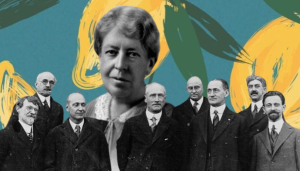Since the evolution of humankind, dreams have been a subject of muse for artists, philosophers, scientists, psychologists, including people of non-intense professions. So many people are searching for this one answer; do dreams come true? Why? They are looking to find answers to whether dreams come true because they are either afflicted by dreams or believe that the dreams they get are predictions of their future. All these people confuse pathological dreams or nightmares with what the brain continues to visually reinforce about their aspirations.
Dreams as Creative Imaginations
For example, if you receive an invitation from the King of Britain, you’ll tell him “It was always my dream to meet the king.” This wouldn’t mean you were pathologically dreaming about meeting the king. That would be disastrous to your brain and physical health. What it would mean is that you had the aspiration of meeting the king, someday, and today your “dream” came true.
Another example would be, “God met me in my dream.” I have to ask if my brain pathologically dreaming of God. Here, despite my faith, I will question the authenticity of the “dream” because I never met God.
How about dreaming of my deceased grandfather? Well, then again, what is the truth of that dream? He was alive, he was close to me, and now he’s no more. Accepting that brain replays imaginations, writes plays, and enforces us to.
Well, take my dream of a wooden airplane with a full design plan as an example. Even though these “dreams” do have the potential to be worked upon for real, they are still just products of our brains and not signs or predictions. Studies show that our dreams may be the result of our brains thinking and putting together what we learn during the day. So, when we think of new ways to solve science or math problems, it’s more likely that our brain is processing and exploring ideas rather than giving us answers.
The world makes a mystery of anything to magnet curious minds. Don’t fall prey to it. There’s nothing mysterious about anything. We either know it, or we don’t and haven’t explored yet, or we have but no suitable outcome yet. work to advance what is available if you can’t afford a new search. @iamlindaashok
The Placebo Effect of Dreams
Dreams can sometimes make us feel like we’ve learned something very important. But it’s important to know the difference between dreams and truth. It’s interesting to dream about an app that can take us to any place we want, but thoughts alone can’t make these things happen. Dreams can bring up strong feelings and give a short-term feeling of satisfaction. But it’s important to look at them with a critical eye and know that the real way to get what we want is through our actions and efforts while we’re awake.
Headaches and Fatigue After Distressing Dreams
Dreams that make us feel bad can have a big effect on our health. Many people say that they have headaches and feel tired during the day after having a very scary dream. These physical symptoms happen because worry and emotions wake you up while you sleep. Do you know that I once asked a so-called sleep doctor on Twitter if it was normal to feel tired after a night of stress? She denied. But after a lot of time has passed, I am sure as hell that she didn’t know anything. It makes sense that if your brain isn’t at rest when you close your eyes at night, you’ll wake up feeling tired and worn out. And if you remember the dream, that makes things even worse.
Misinformation and Fear-Mongering
Unfortunately, there are people who use our natural interests and weaknesses to spread false information about dreams. There are so many YouTube sites that tell you not to dream. Some people tell you never to give up on your dreams. So many movies that trigger some. These people say that dreams can tell the future or give magical information. Believe me, this is nonsense. It takes advantage of your weaknesses to get more attention on social media sites. It is messing with your broken mind by playing terrible psychological games. Don’t pay any attention to them.
Making Sense of Dreams; Absurdity & Clarity
Okay, don’t get confused here. When I say “Dreams don’t come true,” I’m talking about the things you make up when you’re sleeping or have your eyes closed. Usually, good ideas that come to you while you sleep are called dreams, and bad ones are called fears. I don’t pay attention to either one because I want a good night’s sleep to refresh my mind. In answer to the question If dreams came true, wouldn’t that mean we could control everything in our lives? If our thoughts could make our wishes come true, we would have full control over our lives.
Dreams are made up of leftover or fleeting thoughts, or things that you never thought about when you were awake. There are so many things going on in the galaxy right now. There are so many meteors going by. There are so many new stars being born. Do we know all there is to know about what happens in the galaxy? We only know what space experts tell us or what the equipment in the observatory tells us. Likewise, some dreams make sense, some don’t. You don’t have to work hard to figure out what’s going on unless it hints at something that you were trying to solve during the waking hours.
Conclusively, Dreams don’t Come True
In the end, dreams don’t come true, no matter how good or bad they are. If they are good, you might want to remember them or follow up on them, but your brain will make it a habit to remember all of them until you decide which ones are useful and which ones are not. That will make your worry last too long, and by the time you sit down with them, it may be too late in the day. So, the best thing to do is to stay away from them. If you still want to keep a good dream as a realistic goal, you should be gentle with your hopes. I want you to have a good dreamless sleep so you wake up with a fully rejuvenated brain.




